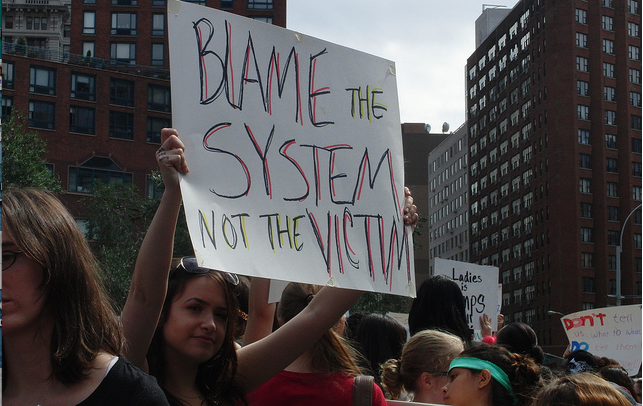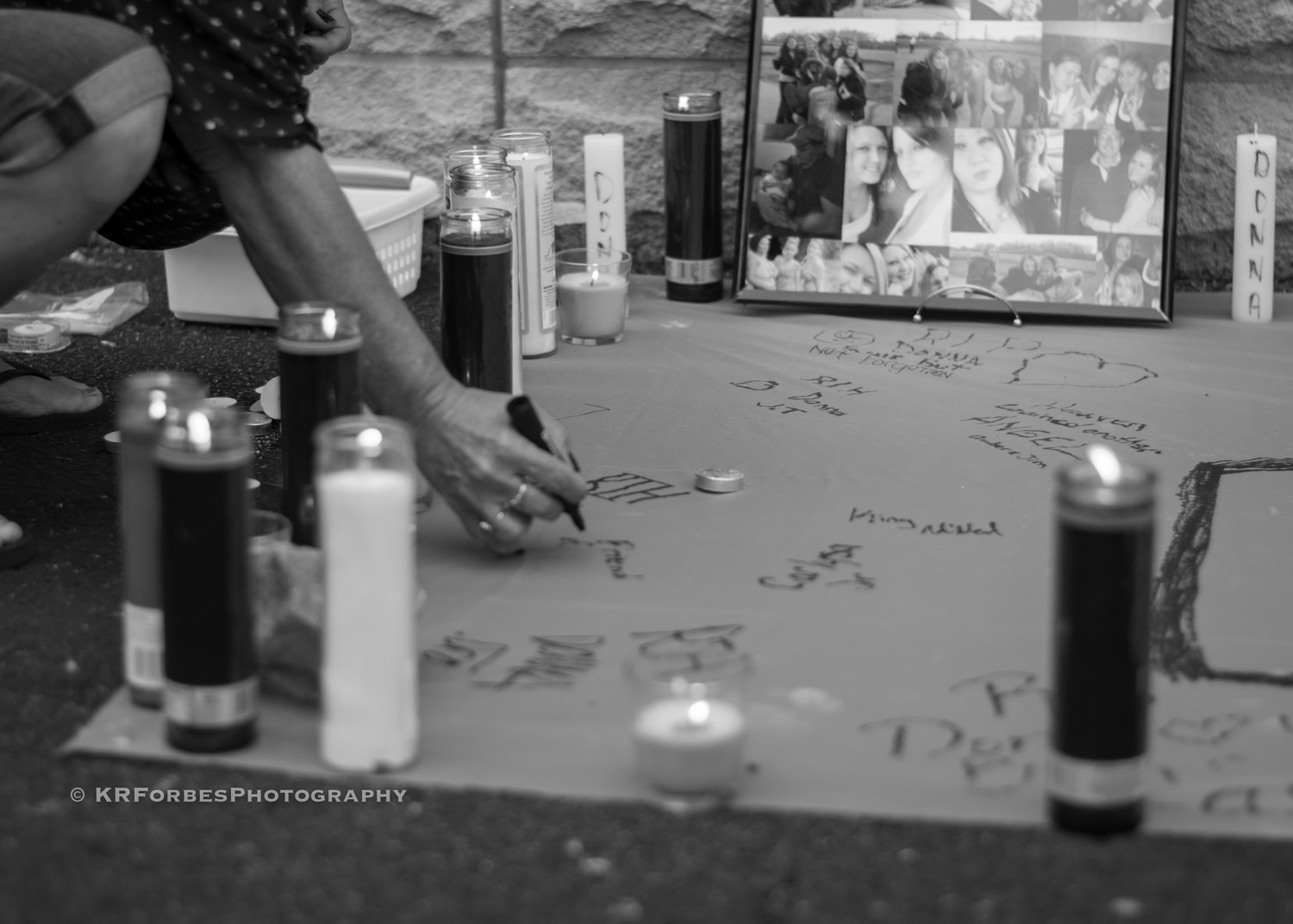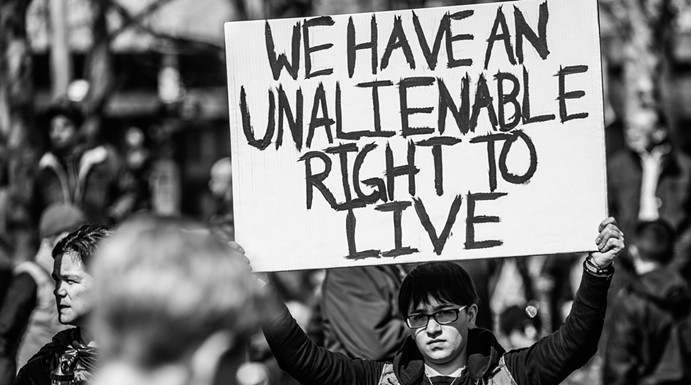In the midst of the continued fallout from the Rolling Stone mess and the ongoing protests against racist police violence, Kate Harding draws the parallels between the victim-blaming tendencies that runs through the conversations on both gendered violence and racist violence.
As a society, we (mostly) acknowledge that corrosive, potentially deadly racism, as an abstract concept, exists. But of course, everyone worth mentioning abhors it! How can you call this a racist society, when we have a 50-year-old Civil Rights Act and a Black president and everything? Michael Brown, Eric Garner, John Crawford, Tamir Rice, were all killed in unfortunate individual misunderstandings. Or, if you insist on finding a pattern here, the unfortunate result of the victim’s bad choices.
Same goes for rape—we believe it’s a horrible thing that definitely happens, and to be sure, no one is in favor of it. So when feminists talk about “rape culture,” they’re just being their usual, hysterical selves, exaggerating to the point that reasonable people can’t take them seriously. But as soon as someone says they were raped—whether it’s a woman in college, a male celebrity, or an 11-year-old girl, we react with disbelief, immediately trying to reframe the story as an unfortunate individual misunderstanding. Or, if you insist on finding a pattern here, the unfortunate result of the victim’s bad choices.
We live in a country full of racism, but no racists; rape, but no rapists. And the common denominator is power. To believe a rape survivor’s word over that of her male classmate, colleague, teacher, or superior officer is to upset the natural order of things, privileging the voice with less cultural authority over the one we expect to have all the answers. Likewise, believing Dorian Johnson’s testimony over Darren Wilson’s means rejecting lessons we’ve been taught from childhood, both explicitly (the police are there to help you) and implicitly (White people are more trustworthy than Black people).
We will go to truly amazing lengths to stick to this pattern of individualizing the problem and/or finding ways to blame the victim. As Katherine wrote recently, in piece that also connected these victim-blaming dots, that’s because to do otherwise would challenge our belief in the “just world hypothesis” — the fantasy that we live in a fundamentally just world in which terrible things must happen for a reason — which serves as a security blanket we wrap tightly around our eyes.
But as we seem to been reaching a tipping point when it comes to awareness on both these issues — as each day seems to bring another story about a black person brutalized by the police and another survivor saying, “This happened to me, too.” — the mental gymnastics it takes to maintain our disbelief just get more extreme. As Juliana wrote yesterday, “Why are you more willing to believe that thousands of people are protesting across the country for no reason than to believe that our criminal justice system is fundamentally racist?” This is why. And this is why we’re willing to believe, against all logic and stats, that all eight women of the women who say Jian Ghomeshi raped them, or all 24 women who say Bill Cosby raped them, or all the millions of others who say they were raped by unknown friends, boyfriends, and strangers, are simply liars.
Because if we didn’t, then we might actually have to stop searching for the mythic “good victim” and focus on the humans — not monsters, just humans — who are doing this. As Sarah Jeong wrote in an incredible piece on the Rolling Stone mess, “There’s a tendency to mythologize the rapist into nothingness.” She writes:
Rape happens, but none of these are rape victims, and none of those they accuse are rapists. Somewhere, there is an ideal victim and an ideal perpetrator. But not here, not in the messy inconvenient spaces where victims aren’t golden-haired princesses snatched out of their towers and rapists aren’t nameless moral black holes with no past and no future, with only THE RAPE as the defining characteristic of their entire existence.
The real rapists are apparently hanging out with the real racists in some parallel universe, while we willfully — because there is really, truly no excuse for ignorance at this point — refuse to, in Kate’s words, “confront the abusive, domineering, murderous upstanding citizens in our midst.”



Join the Conversation